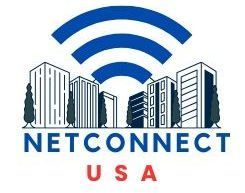Why Internet Matters
The Internet is the backbone of today's world.
It powers education and economy. It supports our health and well-being. And it connects us to our neighbors and to those we love. Americans without Internet miss out on many of these benefits. Roughly 1 in 5 American households aren't connected to the Internet. That's a fifth of our country that's unable to fully participate in modern life. Access to the Internet isn't a luxury. It's a necessity. That's why the Biden-Harris administration is providing $65 billion to expand Internet access. We want to make sure that everyone in America has access to reliable and affordable high-speed Internet. High-speed Internet doesn't just help individuals. It helps our country. It saves us time and money. It creates jobs and opportunities here in the United States. And it helps us connect to one another, building a stronger, more free society.
These are some of the ways that high-speed Internet has transformed our world:
Maximizing savings for
Education
High-speed Internet service is important for students to access quality education and training to be globally competitive. They use the Internet for homework assignments, for research, and to apply to college and trade schools. Students without Internet access at home can fall behind.
Stimulating growth in the
Economy
By connecting the workplace, we can better connect businesses to consumers. And new markets can increase sales and create jobs. High-speed Internet helps American businesses compete for talent and business in the global marketplace. And it helps workers connect to good paying jobs, wherever they might live.
Lowering costs for
Health
Telehealth increases access to care at anytime from anywhere. It reduces hospital visits and stay time, while reducing costs and improving patient care.
Strengthening ties in our
Community
High-speed Internet connects us to services we need. It helps first responders save lives. It lets us connect with our elected officials. And it strengthens our ties to our friends and loved ones anywhere.
Investing in the
Workforce
High-speed Internet improves access to education, job opportunities, and high-quality workers. It helps connect applicants with resources and training for skills development that better qualify them for good paying jobs, wherever they might live.
Overview
President Biden wants to connect everyone in America to affordable, reliable high-speed Internet. The Bipartisan Infrastructure Law provides $65 billion in funding to help achieve that goal. These funds add to and support existing programs that expand Internet access and use.
Four agencies are leading this historic effort: the National Telecommunications and Information Administration (NTIA), the Federal Communications Commission (FCC), the Department of the Treasury, and the U.S. Department of Agriculture (USDA).
Programs support high-speed Internet planning, infrastructure, and adoption. We define these terms as follows:
Planning: Data collection, mapping, and feasibility studies to help develop Internet expansion projects.
Infrastructure: Infrastructure for high-speed Internet deployment.
Adoption: Activities that ensure users can access and meaningfully use high-speed Internet. Includes subsidies, equipment, public access, digital literacy, skills training, workforce development, telehealth, and remote learning.
The goal of these programs is to achieve digital equity through improved access and intentional, inclusive planning that leads to effective, impactful outcomes. Because everyone in America should have access to reliable and affordable high-speed Internet.
